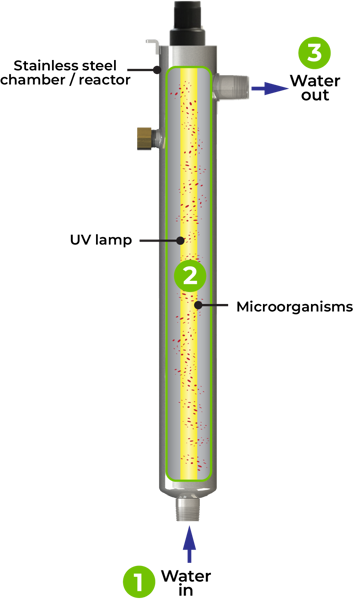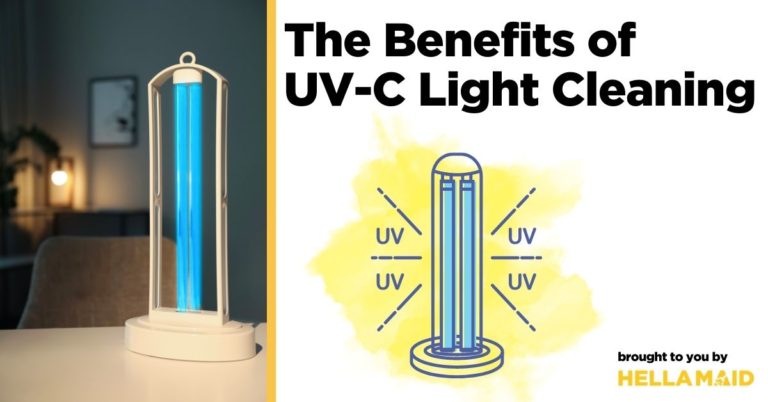6 Simple Techniques For Uvc Light
6 Simple Techniques For Uvc Light
Blog Article
Uvc Light for Dummies
Table of ContentsThe 7-Second Trick For Uvc LightThe smart Trick of Uvc Light That Nobody is Talking AboutUnknown Facts About Uvc LightUvc Light Fundamentals ExplainedExamine This Report about Uvc LightNot known Details About Uvc Light
A brand-new kind of ultraviolet light that might be risk-free for individuals took less than 5 minutes to minimize the degree of indoor air-borne microbes by even more than 98%, a joint research by scientists at Columbia College Vagelos College of Physicians and Surgeons and in the U.K. has located. Even as microorganisms remained to be sprayed right into the room, the level stayed extremely reduced as lengthy as the lights were on.Up until currently these studies had actually just been conducted in little speculative chambers, not in full-sized areas imitating real-world problems. In the existing study, scientists at the University of St. Andrews, College of Dundee, College of Leeds, and Columbia College evaluated the effectiveness of far-UVC light in a huge room-sized chamber with the very same ventilation rate as a common office or home (concerning 3 air changes per hour).
The effectiveness of various techniques to reducing indoor virus levels is typically determined in regards to comparable air adjustments per hour. In this research, far-UVC lights generated the matching of 184 equal air exchanges per hour. This goes beyond any other method to sanitizing occupied indoor spaces, where five to 20 equivalent air modifications per hour is the very best that can be achieved almost.
Getting My Uvc Light To Work

The main parameters of UV-C disinfection are wavelength, dose, relative moisture, and temperature level. There is no agreement about their ideal values, however, generally, light at a high dose and a spectrum of wavelengths containing 260 nm is preferred in an atmosphere at space temperature with low relative moisture. This light can be produced by mercury-vapour, light-emitting diode (LED), pulsed-xenon, or excimer lamps.
There are health and wellness and security risks linked with the UV-C modern technology when utilized in the proximity of individuals. UV-C disinfection systems have promising attributes and the prospective to improve in the future. Nonetheless, information surrounding the various specifications influencing the modern technologies' efficiency in medical facility setting are needed. UV-C sanitation should presently be considered for low-level instead than top-level disinfection.
One more application emerged in 1910 when UV light was used to decontaminate water. However, the innovation was not really reputable at the time and it took better technological advancements prior to UV water disinfection became prominent once more in the 1950s [ 2] Nowadays, UV light is made use of for water, air, food, surface area, and clinical tools sanitation.
Uvc Light Can Be Fun For Anyone
DNA, RNA, or proteins of a micro-organism soak up UV light, with a peak absorbance around 260 nm [6] This leads to the interruption of DNA or RNA, resulting in the inactivation of the micro-organism. UV-C-induced DNA disruption usually includes the bonding of two adjoining thymine (or cytosine) bases as opposed to the conventional connecting find out of a base with its complementary base upon the various other strand.

Dark repair work, on the various other hand, needs multiple enzymes and nutrients for power [6] It is necessary to recognize whether final inactivation outcomes have taken right into account the incident of awakening considering that it may cause 60% of the attained inactivation being reversed [7] Additionally, mutations can emerge upon UV-C exposure given that this exposure can cause the origination of intra-strand cyclobutyl-pyrimidine dimers in DNA [ 6] The UV-C zone is utilized for sanitation but there is no consensus on the specific optimal wavelength. Bacterial DNA and RNA have peak absorbances of light at 260265 nm and around 260 nm, specifically [6] Therefore light at 260 nm can trigger one of the most disturbance. Nonetheless, various micro-organisms are most prone to a little different wavelengths.
The Basic Principles Of Uvc Light
On the other hand, it has technological effects given that the complete power of the light beam is then separated over all present wavelengths. A micro-organism that description is vulnerable to 254 nm light will certainly be inactivated extra by a light that gives off solely light at 254 nm than a light that gives off a wavelength range at equivalent overall energy.
Exposure times of 1045 minutes for room disinfection and 25 s to 5 minutes for medical devices were encountered in literature.
Further, the outcome of a light lowers over time, so it is recommended to determine the dose at the end of light life, which is representative of a worst-case circumstance. The dose additionally influences the amount of photoreactivation.
The impact of temperature level depends on the light resource.
What Does Uvc Light Do?


This is recognized as much UV-C innovation and is a relatively brand-new sanitation method with minimal expertise about its effectiveness.
In study, the results on pulsed versus continuous UV-C sanitation efficiency differ. When more contrasting pulsed and continuous light it is necessary to keep various other variables such as wavelength and dose constant. Nyangaresi et al. and Sholtes et al. both discovered that pulsed or continual light produced by LEDs led to equivalent log10 reductions [15,28]
The 9-Minute Rule for Uvc Light
In case ozone is not needed for sanitation, a changed lamp can be utilized. For mercury-vapour lights, drugged quartz glass or specialized soft glass can filter out short-wave UV-C light. For pulsed-xenon, doped quartz can be utilized too [30] UV-C has promising features for disinfection such as automated sanitation, being much less taxing than extensively used manual or chemical disinfections, leaving no dangerous residuals, and being eco-friendly (if no mercury-vapour lamps are utilized) [31,32]
Report this page